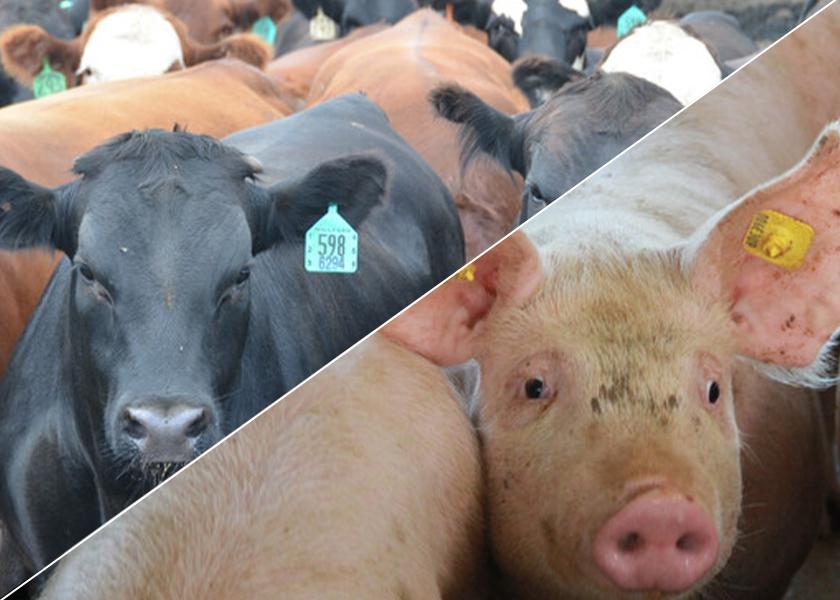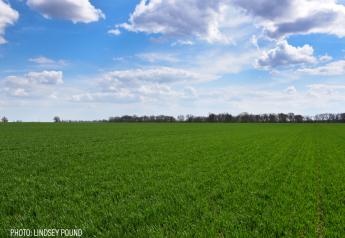Livestock Analysis | July 29, 2022

Price action: August lean hog futures rose $1.525 to $120.65, up $1.95 for the week and the contract’s highest closing price since March 30. October lean hogs rose 90 cents to $97.225, the contract’s highest closing price since April 22.
5-day outlook: Nearby hog futures extended this week’s rally to the highest levels to four-month highs behind strong cash fundamentals. The cash market will continue to be the key near-term price influencer for futures. The CME lean hog index rose 85 cents to $120.58 (as of July 27), just $2.10 under last year’s $128.68, posted in mid-June. August futures closed today at a 7-cent premium to the index after trading at a discount much of the week. But with the lead contract expiring Aug. 12, focus is shifting to October and other deferred contracts, which are trading at sharp discounts to the nearby.
30-day outlook: The cash hog market appears poised to surpass year-ago levels as packers actively compete for hogs even as slaughter rates build, which indicates market-ready supplies are lighter than expected. This week’s slaughter was an estimated 2.291 million head, up 6,000 head from last week but down 22,000 head from the comparable week a year ago. The recent seasonal rally started later than usual and is lasting deeper into the year than normal, and pork demand appears to be holding up reasonably well despite high retail prices and recession concerns. Retail buying for Labor Day weekend features may underpin wholesale prices during the first half of August before purchases taper off. The national direct cash hog price tumbled nearly $11 Thursday and pork cutout values fell 22 cents early today from a 13-month high earlier this week, potentially signaling the cash market may be near a top.
90-day outlook: Based on seasonal patterns, hog futures typically decline from June-July highs into early September, rebound modestly, then move steadily lower into late fall and/or early winter. This year’s delayed rally could push back the usual subsequent decline to early autumn, though futures reflect a larger than normal seasonal decline in fall and winter contracts – December futures settled today at a $32.80 discount to August, for example. The traditional increase in second-half hog supplies probably will commence around mid-August but continued firm pork demand could limit the fall declines and/or lift deferred futures over the long-term. Recent softness in export demand bears watching, as the latest USDA-reported weekly export sales were down 16% from the average for the previous four weeks.
What to do: Be prepared to extend feed coverage when market bottoms are in place.
Hedgers: Carry all risk in the cash market for now.
Feed needs: You are hand-to-mouth on corn-for-feed and soybean meal needs.
Price action: August live cattle rose 27.5 cents to $136.45, down 92.5 cents for the week, while October futures gained 40 cents to $142.225. September feeder cattle rose $1.35 to $181.55, down $2.925 for the week.
5-day outlook: Live cattle futures ended the day firmer but down for the week with the cash market heading for a fourth consecutive weekly decline. USDA-reported live steers averaged $138.61 through Thursday morning, down from last week's average of $141.12. Meatpackers continue to pull cattle primarily from previously committed supplies, limiting feedlots’ leverage. Futures traders will watch closely for a potential stabilization or firming in cash prices. Wholesale beef prices extended a sideways pattern this week but may get a boost in early August as retailers step up buying for Labor Day weekend features.
30-day outlook: Despite persistent cash market erosion, nearby futures are still trading at a discount to cash and remained in a modest uptrend over the past month, reflecting an outlook for tight animal supplies. Slaughter weights are rising, but that’s largely a seasonal phenomenon and weights remain below year-ago. Feedlots are current and should regain negotiating power in the near futures once packers have worked through the animals that were sold “with time” when the cash market reached its peak for the year in June. This week’s slaughter was estimated at 669,000 head, up 4,000 from last week.
90-day outlook: Longer-term direction hinges in large part on the U.S. and global economy. Preliminary U.S. second-quarter GDP unexpectedly shrank, the second straight quarterly decline and a possible sign the economy is already in a recession. But wholesale beef prices are down only slightly from year-ago levels and beef demand appears to be holding up fairly well, and recent strength in the U.S. stock market suggests improving confidence the Federal Reserve will eventually bring down surging inflation. Choice beef cutout values rose $2 early today to $269.77, up $2.65 from the end of last week. Export demand has also been robust. USDA yesterday reported net weekly U.S. beef sales at 25,300 MT, a 6% increase week-over-week and a 66% increase from the four-week average.
What to do: Be prepared to extend feed coverage when market bottoms are in place.
Hedgers: Carry all risk in the cash market for now.
Feed needs: You are hand-to-mouth on corn-for-feed and soybean meal needs.






